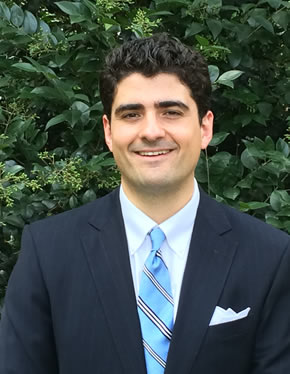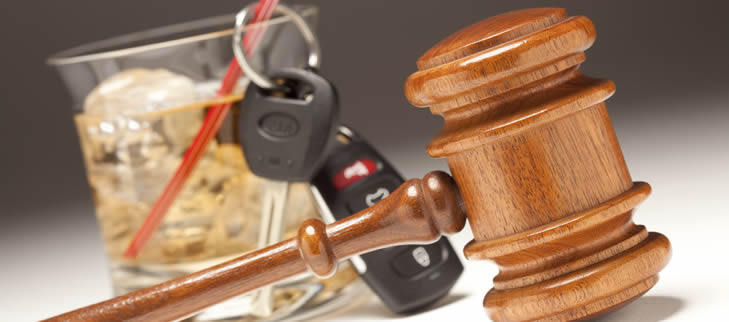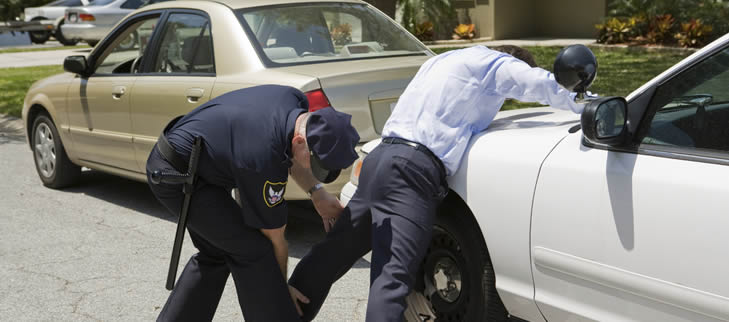Andrew Lynch Awarded Super Lawyer’s Rising Legal Star Status 2015

Andrew Lynch was awarded the status of Super Lawyer’s Rising Star 2015 for the area of Criminal Defense. This award is only given to the top 2.5% of lawyers throughout the county. Click here to see more.
“Super Lawyers is a rating service of outstanding lawyers from more than 70 practice areas who have attained a high-degree of peer recognition and professional achievement. The selection process includes independent research, peer nominations and peer evaluations.”
Atlanta Municipal Court Warrant Amnesty Program

 Atlanta Municipal Court: Warrant Amnesty Program Now!
Atlanta Municipal Court: Warrant Amnesty Program Now!
As of today, February 2nd, 2015, the warrant amnesty program for City of Atlanta has begun. This will be in effect from February 3rd, 2015 to March 27th, 2015. All active warrants issued by the City of Atlanta before November 18th, 2015 will be be canceled. If you had an active warrant out, now is the time to act and get rid of your charges. Many people with warrants want to go to the courthouse to settle their cases, but are afraid of going in for fear that they will be arrested and put in jail upon arrival. You do not necessarily have to have committed a serious crime to have a warrant issued. A common situation is “failure to appear”, which could have been caused by something as harmless as forgetting to go to court for a speeding ticket.
Luckily now is an excellent time to deal with this. For the next eight weeks, you can go to the Atlanta Municipal Courthouse at 150 Garnett Street, to settle your case. The courthouse will be open from 7:00 AM to 5:30 PM, Monday through Friday. For those who cannot make it at those times, the court will be open on Saturday, March 21st, starting at 10:00 AM, for people to seek resolutions. You can either register online or in person.
If you live out of town, and need to follow up with this by doing a “plea in abstentia”, or are uncomfortable going on your own, hiring an attorney will be the most effective way to deal with this. The Lynch Law Group has much experience in dealing with this court and these warrants. Click below for additional information.
To Blow or Not to Blow: How does a refusal affect me at trial of my DUI at Trial?

Many people debating to fight a DUI case in court wonder how, if at all, my refusal of the state sanctioned test of my blood, breath, or urine for alcohol or drugs will affect them at trial. The short answer is, your trial judge will charge your jury that a refusal of the state requested test of your blood alcohol content is an inference that alcohol would have been present but not that you were impaired. In non lawyer terms, it will be legally inferred you did consume alcohol, but the state does not get the inference that you were impaired or “drunk” on the alcohol. The judge will also tell your jury that the test is voluntary and you do not have to consent to the officer’s requested test.
The Actual Financial Cost of a DUI

The Cost of DUI:
Most people are afraid after they have been arrested for committing a crime, like Driving Under the Influence. Our first reaction is to fear the physical penalties, such as the danger of going to jail. However, even if jail time does not come as a penalty for your DUI, there are other costs involved. Depending on who you are, these costs could be worse than jail time. Some say that it hurts the most to be hit in the wallet, and a DUI can certainly hit a wallet hard. Remember, the state loses money by putting you in jail, and nobody wants to lose money. If you get a DUI, the state can milk thousands of dollars out of you.
First Cost: Bond
Intoxicated drivers are not ever cited and allowed to go. They are arrested and physically taken to jail. They are not released from jail until bond is posted. Bond can be anywhere between $1000 and $2500, possibly significantly more. You will get all the bond money back when your case is over, regardless of the outcome, but this could be over a year. If the full bond amount is not paid, you will have to hire the services of a bail bonds company to post it for you. Bond companies typically keep between ten and fifteen percent of the bond you post as their fee.
Next Cost: The Car Impounding
The police will take your car when you are arrested for DUI. The police will likely call a local towing company to tow your car to the lot, a cost that can range from $80 to $250. The impounding lot will charge about $50 rent per day, which will add up quickly. Many impounding lots have a policy that if a car is not retrieved by its owner within 30 days for whatever reason, they are allowed to sell your car. They will keep the proceeds.
Next Cost: Fines and Court Costs
No traffic violation will result as high as a fine as a DUI fine will be. Fines in Atlanta but can be as high as $1000. This is not including court costs. Court costs are used to pay for things like bailiffs, clerks, and court transcripts. Court costs can range around half of the total fine. As of July 2012, Georgia added an automatic fifty percent surcharge to court costs. Added up, this can cost you almost two thousand dollars.
Next Cost: Probation Fees
Georgia also has passed a new law stating that probation does not end early with DUI cases. DUI defendants have to be on probation for an entire year. To make matters worse, probation can now be contracted out to supervision companies. If you are probation for a year, you will pay between 40 and 50 dollars a month. For twelve months, this can add up to $600.
Next Cost: Probation Conditions
Every person who is convicted of a DUI in Georgia must take and complete Risk Reduction Program. This is also known as DUI school. The price of DUI school is $292, and takes 20 hours to complete, which is stretched over the course of three business days. The sentence also includes alcohol evaluation counseling, which can range from $175 and $250. There are other penalties that judges can choose to impose. A judge may choose to sentence you to sit through a “victim impact panel, hosted by Mothers Against Drunk Driving, which runs for no less than three hours, but also costs $50. For repeat offenders, judges may sentence in-home rehabilitation.
Next Cost: Getting License Back
Getting one’s license back is of course going to cost a certain sum of money. But the real cost is attempting to live without a license in this day and age. For first offenders, time for driver license suspension is 12 months, but after taking DUI school, it can be reduced to four months (120 days). During these 120 days, you can apply for a limited permit that will allow you to travel to work, school, and emergencies, but basically nowhere else. The work permit costs $25 but the reinstatement fee is $210.
These are only the easier costs for first offenders. For DUI repeat offenders, the costs begin rapidly rising. Upon your second DUI offense, your license will be suspended for three years. You will not be able to get a permit the first 12 months. After the first year of your suspension is up, you will only be allowed to drive if you have an interlock for the next six months. An interlock is a machine that you blow into which prevents the car from starting unless you are sober. An interlock is around $60 to rent. For six months, this totals up to $360 rent, but there are also installation costs and removal costs that are not included in this. The greatest cost of all, however, is not a direct financial fine, but the general impossibility of existing in today’s world without a license. The inconvenience will know no bounds.
Next Cost: Insurance
After getting a DUI, insurance becomes the biggest monetary cost over the years. Some insurance companies will immediately kick you off their plans just for getting arrested for DUI. This is before you are even charged or convicted. If your insurance plan keeps you, it is very likely that it will double, triple, or even quadruple. For example, if your insurance is currently $1500 a year before your DUI, it will probably go up to around $3000, and maybe even as high as $6000. If you are charged with any other traffic violations, even minor ones where no one could get hurt, the insurance rates will continue to inflate and inflate.
Next Cost: Career
Although the costs mentioned thus far are direct financial penalties, there are other un-measurable financial penalties felt over time. Many careers can take a huge hit from a DUI charge. Most people with professional licenses, especial in medical, legal, or financial fields, will have to disclose their DUI charge upon renewal. Like a driving license, is likely your professional license will be suspended, or possibly even revoked. For airline pilots, it is career ending, with basically no exceptions, as the FAA will ground you. If you drive a company vehicle, and have what’s known as fleet insurance, most companies will terminate this position. It also can be a deal-breaker on new applications.
Next Cost: Time
Another cost that cannot be measured financially is the amount of time dealing with all these DUI punishments when one needs to be working. It will require you to take days and days off of work, which the company you work for may or may not decide to tolerate. You will need to have meetings with probation officers, and lawyers. You will need to be attending court dates, DUI school, alcohol counseling classes. You will need spend time doing community service, which will be forty hours (an entire 9-5 work week) for the first offense, and 240 hours (literally the equivalent of ten whole days) for the second. Basically, you will have a mountain of new financial obligations to meet because of the DUI, but the penalties of the DUI will cause you to miss the work days (and possibly terminate them completely) you need to make the money to meet all these financial penalties. It becomes a lose-lose situation.
Most Important Cost: Lawyers
Many of these costs described are the outcomes of essentially, the best-case scenario if you are found guilty. If you face these DUI charges without a good attorney, the outcomes could be far worse than described above. You will need to be willing to spend the money up front on a good attorney to avoid these severely crippling financial burdens that will come later, if you are found guilty of a DUI. The initial cost of attorney’s fees may seem like a lot, and motivate you to find a cheaper attorney. Do not make this mistake. What you do not pay now for a good attorney, you will only end up paying for later.
The Lynch Law Group has years of experience handling DUI cases, if you need help call us now 404-373-7735.
Police Coercion in Getting You to Consent to a Search of Your Blood, Breath, or Urine in a DUI Investigation

A police officer arresting you for DUI can ask you for a sample of your blood alcohol content (“BAC”). Sometimes a person does not know what to do and turns to an arresting officer for advice. Sometimes the advice is fair and true, sometimes it is misleading and illegal. The following are factors in what is legal and what violates your rights:
“If an officer gives additional, misleading information that impairs a defendant’s ability to make an informed decision about whether to submit to testing, the defendant’s test results . . . must be suppressed.” Miller v. State, 317 Ga. App. 504 (2012). “Misinformation regarding the consequences of a refusal to submit to the state administered test may constitute unlawful coercion. Wallace v. State, 325 Ga. App. 142 (2013). Misinformation not necessarily required, “the court must evaluate the officer’s actions to determine if the officer acted reasonably in the situation and whether the procedure was applied in a fair manner.” State v. Rowell, 299 Ga. App. 238 (2009). “The procedure utilized by the officer in attempting to persuade a defendant to rescind [her] refusal [must be] fair and reasonable.” Id. Whether Defendant “felt coerced when deputy mentioned[whatever] . . is at the heart of the case. Id. at 240.
Factors Considered:
- Was the Officer’s statement deceptively misleading regarding breath test?
- Made specifically to encourage or coerce Defendant into consenting?
- Was conversation surrounding about breath test?
- Close in time?
- Did submission take place immediately after information?
- Intentional misinformation not necessary?
- Subjective feelings of Defendant is heart of case?
If you have been arrested for DUI you should seek an expert to review your case today?
Road Blocks Leading to a DUI or Drug Arrest in Georgia

Checkpoints are something we associate with totalitarian governments or militarily occupied third world countries. But police checkpoints are not only in Afghanistan and the Gaza Strip, they occur here, in the US. Here we call them “road blocks”. It is something that we think of as “it can’t happen here”. The problem is, it can happen here, it does happen here, and it can happen to you. It is literally the only example of the police not thinking you or anyone in your car are up to anything criminal but still using their government authority to stop you.
If the government stops you at a roadblock they have to get it right or whatever they charge you with can be thrown out of court as inadmissible against you.
There is a saying that goes, “If you are going to break the big rules, obey all the little ones.” Which means if you happen to be a constant drunk driver or a regular drug-user who frequently drives with drugs, you need to do everything to not get pulled over. You better stop at stop signs, keep your tags updated, drive the speed limit, etc. If you obey all traffic laws, you will not be pulled over.
However sometimes you run into the unfortunate situation where you are stopped by the police, even when you are driving perfectly. A checkpoint or roadblock is the most likely instance where this would happen. They will ask for your license and registration as if you are being pulled over. Even though you didn’t break any traffic laws, the police still have that chance to smell the booze on your breath or the stash of weed in your back seat.
After going through a road block, you may find yourself being arrested for possession of drugs or DUI. Your reaction will be anger about the fact that you were arrested after trying to attract the minimal amount of attention to yourself. Luckily, you may be the one in the right. How the police conducted checkpoint may have been a violation of your constitutional rights. Your attorney may be able to prove in court that your rights were violated and have your pending DUI or drug case thrown put of court.
After the case Baker vs. State, 252 GA, App. 695, there are six requirements for the validity of a checkpoint to hold up in court:
The Requirements for a “Legal” Roadblock in Georgia:
First, the checkpoint must be authorized by supervisory personnel to exist in the first place. Supervisory personal is what it sounds like a boss decided to do this.
Second, it must serve a legitimate primary purpose, such as area where there have been high instances of DUIs. It cannot be random. It cannot just be fore general crime suppression.
The third requirement is that all vehicles are stopped, there is not allowed to be any profiling of who is stopped. Everyone is supposed to be treating equally.
Fourth, there must be minimal delay, as in the police need to get each car through as quickly as possible, implying they cannot snoop around cars without probable cause.
Fifth, the area needs to be well identified as a police checkpoint, meaning people know that there will be a checkpoint if they choose to drive on a particular road.
Sixth, the officer screening the vehicles that come through must have adequate training and experience to deal with the situation.
Luckily, we still have constitutional rights that protect us from overreach by the police.
In the Georgia Supreme Court case Brown vs. State, 293 Ga. 787, it was upheld that all checkpoints must serve a reasonable purpose. In 2000, the United States Supreme Court case was City of Indianapolis vs. Edmond. 531, US 32 limited the powers that police have when using checkpoints. The key aspect was the appropriate primary purpose requirement. In a Georgia case Williams vs State, 293 Ga. 883, the sheriff’s department was ruled to have set up an unconstitutional roadblock. A roadblock must have a legitimate focus.
When a roadblock is understaffed, it often correlates to the roadblock being unconstitutional. One of the requirements is that a supervisor must have planned the roadblock in advance. When only two or three officers are manning the roadblock, it is typically a sign that they did not receive proper orders from supervisors, and are therefore manning a poorly planned roadblock. As a result, this violates two of the six rules. One of those is that traffic must go through efficiently, as an understaffed roadblock cannot possibly go through many cars in an efficient matter. The other is that the officer must be highly experienced in conducting a roadblock. If they are understaffed, he may be trained, but he cannot do an efficient job.
Avoiding a roadblock can have pros and cons. If the roadblock is not explicitly identified, then if you make a u-turn and leave the area, if you are pulled over, it may be possible for you to prove in a court of law that you did not know that it was a roadblock, possibly an accident, and you were just avoiding the accident. It is not illegal to simply not go to a roadblock. The police have to show you were avoiding their roadblock. If the roadblock is specifically marked, the officer can claim reasonable suspicion that if you turn away close to the roadblock.
If you have been stopped and arrested in a roadblock contact Attorney The Lynch Law Group today! 404-373-7735.
Atlanta Municipal Court D.U.I. Case Flow Managment Plan
If you are charged with a DUI in Atlanta Municipal Court, it is never a good thing or a pleasant experience. However, knowing the exact steps to take after the DUI will help you be prepared and make the entire process go by smoother.
For some people, things are better when they are organized. And it is best when faced with a huge problem, such as a DUI. Luckily, Atlanta Municipal is one of the courts that makes it easier. By invoking a case flow management plan, the Atlanta Municipal DUI court ensures that the final disposition of the case unless bound over to a State Court of Georgia, the final outcome, will be decided with 180 days, or six months.
It is important to appear in court, at the date and time listed on the yellow ticket paper given to you by the police after you are bonded out of jail. If you hire an attorney prior to your first appearance the court will allow that attorney to appear for you.
Atlanta Municipal Court’s DUI case flow structure is systematic and generally moves forward with the following court dates:
Arraignment Court Date (Your First Day in Court):
The arraignment occurs within twenty-four to forty-eight hours of arrest. If you hire counsel prior to this court date the Judge will generally excuse your presence fro this court date and all future court dates with the exception of the final plea court date. At arraignment Judge Ward of the Atlanta Municipal Court will inform you of your rights and the charges you are facing in his court. Generally he will not allow you to enter a plea of guilty and the case will be reset for you to hire counsel. It is best to have counsel to represent you at this date.
Inquiry/Status Court Date:
Two weeks, or fourteen days after the arrest, there is a court date where the judge inquires of the prosecutor and the defense lawyers the status of the case. A month into the case, or thirty days, there is another status inquiry with the judge and the prosecuting and defense attorneys. These court dates are generally to let the court know if the case is progressing as expected or to allow the attorneys to address with the Judge if there are issues involving the case that need to be raised and addressed to keep the case moving through the court system smoothly.
Atlanta Municipal Court’s DUI Court Generally:
Once your lawyer files an entry of appearance, a legal motion notifying the prosecutor you have hired a lawyer and are requesting the evidence in your case, you will not have to appear in court until the day when you must make your final plea in Atlanta Municipal Court: Guilty, or not guilty. This means that for two months, you and your lawyer can work on the case and decide what is your best way of dealing with the pending DUI. Your lawyer will make appearances for you, so you do not have to miss work, and he will work everything out himself with the prosecuting attorney without you having to even be there. If you want to appear in court you may, but once an attorney is hired the Judge only requires you to attend on the final plea court date.
Final Plea Calendar:
By two months, the defendant must announce either: a guilty or not guilty plea. It is there that the defendant and his attorney must decide whether or not they wants to do a jury trial or not. If you want a jury trial on the final plea date you and your lawyer will ask Judge Ward to send your case to the appropriate State Court of Georgia. Generally this is Fulton County State Court, but for DUI’s around Moreland Avenue in Atlanta it can also be Dekalb County State Court. If you move your case to State Court, you will have a new Judge and Prosecutor assigned to your case. Generally there is a lengthy period of time before your DUI will make it into court again.
Motions Calendars:
If you elect to waive your right to a jury, the court will place your case on either a motions calendar or trial calendar. The motions calendar is specifically to raise violations of your constitutionally or legal rights with the Judge and to ask him to make appropriate ruling to limit the admission of this evidence against you in court.
Bench Trial:
A bench trial calendar is available in Atlanta Municipal Court if you are comfortable having a Judge sit as the trier of fact in your case, as opposed to a jury or if you need your case resolved in a short period of time.
Generally speaking the goal of the the Atlanta Municipal Court is to have your case resolved within 180 days of arrest or to let you take your case to the State Court within in 60 days of arrest.
DUI: Limited Driving Permit for Person’s Charged and Living in Georgia but Licensed to Drive in Another State
Recently a client came in with an out of state license but lived in Atlanta and had not switched her license over prior to being charged with DUI in the city of Decatur Municipal Court.
It was important for this client to get her license changed over to a Georgia license at our Department of Driver’s Service prior to filing a challenge to the Adminstrative License Suspension of her license. The simple fact is, once challenged Georgia’s Department of Driver’s Services would in effect freeze her license status. By getting a license from the State prior to going to court she is allowed to request a affidavit of first lifetime conviction from the court and will be eligible for a work driving permit after the her case is completed.



